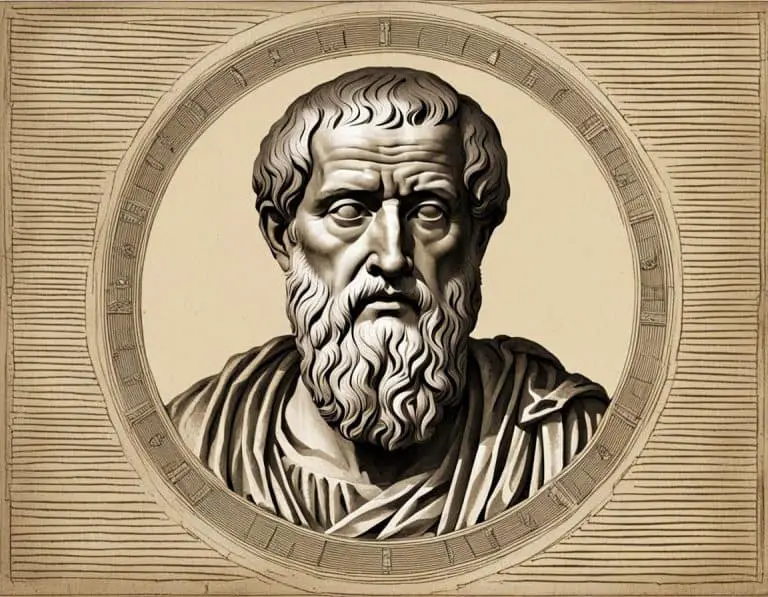The Platonic Love
Plato’s works have had a profound impact on shaping Western philosophy, and his concept of Platonic love stands out as a unique and influential idea. The notion of Platonic love, as presented in dialogues such as “Symposium” and “Phaedrus,” goes beyond physical attraction and embodies a deep, intellectual connection between individuals. It emphasizes the pursuit of wisdom, truth, and beauty in a relationship, rather than mere romantic or sexual gratification. This understanding of love as a spiritual and intellectual bond reflects Plato’s belief in the transcendental nature of the human soul and the eternal pursuit of higher truths.
In Plato’s view, Platonic love can serve as a stepping stone towards a greater understanding of the Forms and the ultimate reality. Through the mutual admiration, respect, and intellectual exchange between lovers, individuals can elevate their souls and aspire towards a higher state of existence. This idealized form of love encourages self-improvement, philosophical discourse, and the contemplation of universal truths. By promoting the cultivation of virtue and the quest for higher knowledge, Plato’s concept of Platonic love continues to inspire thinkers, writers, and individuals seeking profound connections beyond the physical realm.
Impact on Aesthetics and Literature
Plato’s influence on aesthetics and literature is profoundly significant in the realm of Western philosophy. His dialogues, such as “The Republic” and “Symposium,” delved into the nature of beauty, art, and poetry, sparking profound contemplation on the essence of creativity and its role in society. Through characters like Socrates, Plato explored the idea of the Forms, suggesting that true beauty and artistry exist beyond the material world, serving as a source of inspiration for countless artists and thinkers throughout history.
Moreover, Plato’s focus on the power of storytelling and rhetoric in shaping beliefs and values left a lasting impact on literary traditions. His critiques of poets and playwrights in “The Republic” highlighted the potential dangers of art that merely mimics reality without offering deeper insights. By emphasizing the importance of ethical storytelling and the cultivation of virtuous characters, Plato laid the foundation for a rich tapestry of philosophical inquiry into the interplay between aesthetics, ethics, and the human experience.
The Legacy of Plato’s Academy
Plato’s Academy stands as a beacon of intellectual excellence in the history of Western philosophy. Established in Athens around 387 BC, the Academy was not only a center for philosophical discourse but also a place where scholars and thinkers gathered to explore a wide range of subjects, from metaphysics to mathematics. The Academy’s emphasis on critical thinking, dialogue, and the pursuit of truth laid the foundation for the development of academia as we know it today.
Through its rigorous curriculum and commitment to seeking knowledge, Plato’s Academy produced some of the most brilliant minds of antiquity. Scholars like Aristotle, who later went on to establish his own school, and Euclid, the father of geometry, were among the many students who were inspired and shaped by the teachings of Plato. The legacy of the Academy extended far beyond its physical existence, influencing generations of philosophers, scientists, and scholars who would continue to propagate its ideals of truth, wisdom, and intellectual inquiry.
Influence on Intellectual History and Scholarship
Plato’s intellectual contributions have left an indelible mark on the history of scholarship, distinguishing him as a pivotal figure in the development of Western philosophical thought. His writings, particularly in the form of dialogues, have been extensively studied and analyzed by scholars throughout the centuries. The method of inquiry he utilized, known as dialectic, continues to inspire intellectual pursuits and critical thinking in academic circles.
Moreover, Plato’s emphasis on the pursuit of truth and the importance of questioning one’s assumptions has been foundational to the development of various fields of study, ranging from ethics and metaphysics to epistemology and political theory. His dialogues, such as “The Republic” and “Symposium,” have served as touchstones for scholars seeking to unravel complex philosophical concepts and engage in profound intellectual discourse. Plato’s enduring influence on intellectual history is a testament to the enduring power of his ideas and the profound impact they continue to have on scholarly pursuits.
Critique of Democracy
Plato, the eminent Greek philosopher, held a deep skepticism towards the concept of democracy. In his renowned work “The Republic,” he famously criticized democracy for its inherent flaws and inefficiencies. Plato believed that allowing the majority of citizens to make decisions could lead to chaos and instability within a society. According to him, unchecked democratic governance often results in populism, demagoguery, and the suppression of individual liberties.
Plato argued that democracy could easily degenerate into tyranny as leaders pandered to the masses for political gain. He contended that the pursuit of personal interests and passions by the ruling class under democratic systems could undermine justice and lead to societal decay. The philosopher proposed a more meritocratic form of governance, where the most intellectually and morally virtuous individuals would rule, ensuring the well-being and longevity of the state.
Impact on Governance and Justice
Plato’s thoughts on governance and justice have left an indelible mark on Western philosophy. Arguably his most famous work, “The Republic,” delves deep into questions of how an ideal society should be organized and the role of justice within it. Plato believed that a just society could only be achieved by having a philosopher-king at its helm – someone who possessed both intellectual rigor and moral integrity.
Moreover, Plato’s critique of democracy in “The Republic” challenges our conventional understanding of governance. He viewed democracy as inherently flawed, prone to manipulation by demagogues who appealed to the masses’ base desires rather than the common good. Instead, Plato advocated for a meritocratic system where individuals were assigned roles based on their abilities and virtues, ensuring that the most qualified individuals governed society.
Related Links
Reviewing Plato’s Legacy in Western Philosophy
Why Do Scholars Emphasize Plato’s Impact on Western Philosophy
